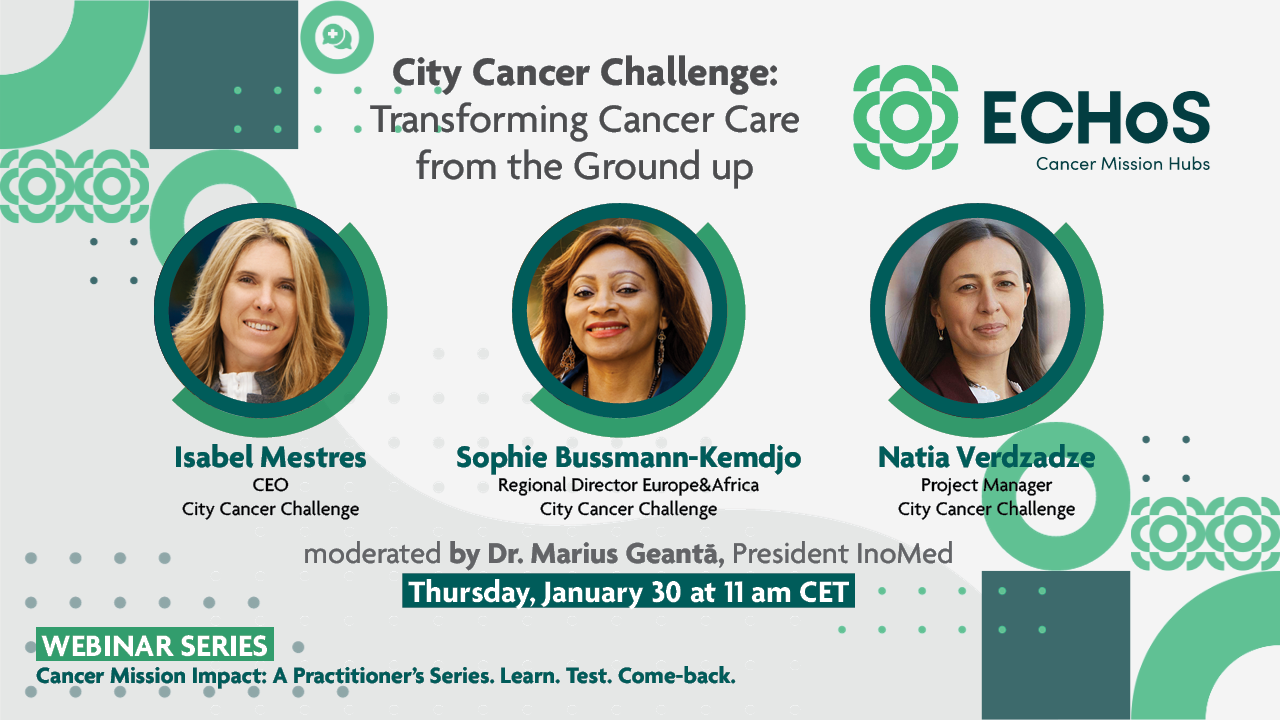Transforming Cancer Care from the Ground up
12th February 2025

Part of the ECHoS Project “Cancer Mission Impact: A Practitioners’ Series. Learn. Test. Come-back,” this webinar features Isabel Mestres, Sophie Bussmann Kemdjo, Natia Verdzadze from the City Cancer Challenge and it is moderated by Dr Marius Geanta. The session explores how National Cancer Mission Hubs (NCMHs) can effectively transform cancer care by engaging communities, stakeholders, and civil society in their initiatives.
Isabel Mestres discusses the rationale behind the City Cancer Challenge, emphasizing, “Cancer care needs to be approached from a local perspective, as that is where the data and patients are.” She highlights that while innovations in cancer treatment have progressed, access to these advancements remains inequitable, particularly in vulnerable populations and rural areas.
Addressing the development of NCMHs, Isabel notes, “The creation of these hubs is essential to align local cancer care with national health systems, enabling a more coordinated and effective response.” She stresses the need for systemic approaches to avoid siloed interventions and to engage all relevant stakeholders, including patients and community organizations, early in the process.
Sophie Bussmann Kemdjo presents the operational model of City Cancer Challenge, outlining six main pillars that emphasize people-centered care, data-driven approaches, and multi-sectoral partnerships. She states, “By placing people at the center of our initiatives, we can ensure that our solutions are tailored to local needs and contexts.”
Natia Verdzadze shares insights from Tbilisi, Georgia, where patient organizations are actively involved in every phase of project implementation, from needs assessment to planning and execution. She expresses, “Involving patients not only enriches the decision-making process but also builds trust and accountability within the community.”
The webinar outlines various strategies for community engagement, including both one-way and bi-directional communication methods. Real-life examples from cities like Kigali and Rosario demonstrate how tailored approaches can effectively enhance cancer care services.
Isabel concludes: “NCMHs must reflect on their engagement strategies, considering collaboration with existing community platforms and integrating engagement as a core function. Starting small and progressively building on successes can amplify the impact of cancer mission hubs.”
Watch to learn how NCMHs can leverage community engagement to achieve meaningful results and improve cancer care outcomes beyond traditional approaches!